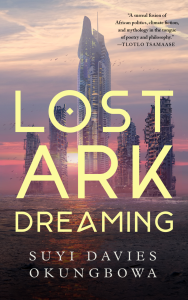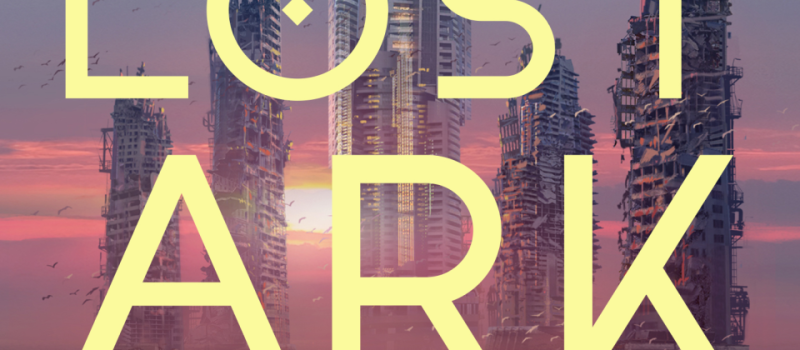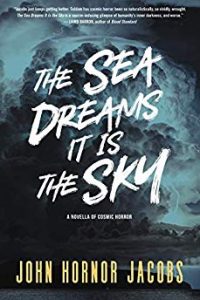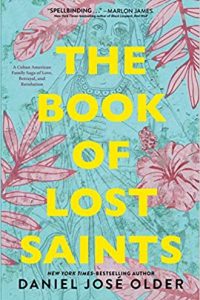Gary K. Wolfe Reviews Lost Ark Dreaming by Suyi Davies Okungbowa
 Lost Ark Dreaming, Suyi Davies Okungbowa (Tordotcom 978-1250890757, $19.99, 192pp, hc) May 2024.
Lost Ark Dreaming, Suyi Davies Okungbowa (Tordotcom 978-1250890757, $19.99, 192pp, hc) May 2024.
The idea of social stratification enforced through architecture – in other words, high-rises with the rich living at the top – has been a staple of SF imagery at least since Fritz Lang’s Metropolis, and it’s been extraordinarily useful as a way of exploring everything from overpopulation to Ballardian alienation to urban dystopia to – more recently – the hazards of climate change. A few months ago, I noted that these megastructures showed up in a couple of stories in Wole Talabi’s Convergence Problems, and now a giant tower called the Pinnacle – rigidly segregated into Uppers, Midders, and Lowers – is the setting for Suyi Davies Okungbowa’s Lost Ark Dreaming. This led me to wonder if the idea might hold particular resonance for urban Nigeria, and Okungbowa does offer some very chilling observations about the possible future of Lagos. While the novella’s main action is set in a long-inundated Nigeria in an indeterminate future, several interchapters present documents from as early as 2012, and one of these notes that ‘‘about two in three Lagosians live in slums, and a significant number of these communities reside dangerously within reach of the shore.’’ Rather than try to protect these communities, the document explains, the governor simply evicted them, citing precedents dating back to colonial times and, in particular, an actual 2016 eviction that displaced some 30,000 people. ‘‘Often, the lands seized in these grabs are then offered to capitalist ventures and investors who gentrify them for more economic purposes from which the government benefits.’’
That, in a nutshell, is the setting and history for the problem that confronts Yekini, a mid-level analyst for a police-like agency called the Commission for the Protection of the Fingers (the ‘‘fingers’’ are five high-rises originally built to house the population above the floods, although only the Pinnacle is still inhabited). Together with a higher-level bureaucrat named Ngozi, she is assigned to investigate a potentially dangerous breach in one of the lower levels – below the level of the surrounding waters – which she suspects may be not just a leak, but an incursion by creatures called Yemoja’s Children, aquatic dwellers who might recall the creature from the Black Lagoon to Western readers. Joined by a resourceful lower-level foreman named Tuowo, Yekini and Ngozi begin to learn not only about the true nature of the Children, but about the extent to which the elite upper levels might go to protect their own safety and hegemony.
One of the flaws of much dystopian fiction is the failure to credibly map a path from here to there, offering instead half-baked backstories involving convenient catastrophes or violent coups. This is fine as long as the dystopia is to be read as purely metaphorical, but as speculative SF it omits a lot of connective tissue. A striking feature of Lost Ark Dreaming is how those interchapters map directly on to the central narrative, showing how a combination of inevitable climate disaster, predatory capitalism, and chronic inequality can lead credibly from our own present to a society like that of the Pinnacle. The story of an idealistic cop uncovering and then fighting against a corrupt system is hardly new, of course, and later the story takes a mystical turn, involving a godlike figure named Queen Conch, that vaguely recalls elements of Rivers Solomon’s The Deep. But Okungbowa’s clear-eyed look at present dangers and the compassion and conviction of his characters as they come to confront the dark realities of their society lend the tale a memorable and even heroic resonance.
Gary K. Wolfe is Emeritus Professor of Humanities at Roosevelt University and a reviewer for Locus magazine since 1991. His reviews have been collected in Soundings (BSFA Award 2006; Hugo nominee), Bearings (Hugo nominee 2011), and Sightings (2011), and his Evaporating Genres: Essays on Fantastic Literature (Wesleyan) received the Locus Award in 2012. Earlier books include The Known and the Unknown: The Iconography of Science Fiction (Eaton Award, 1981), Harlan Ellison: The Edge of Forever (with Ellen Weil, 2002), and David Lindsay (1982). For the Library of America, he edited American Science Fiction: Nine Classic Novels of the 1950s in 2012, and a similar set for the 1960s. He has received the Pilgrim Award from the Science Fiction Research Association, the Distinguished Scholarship Award from the International Association for the Fantastic in the Arts, and a Special World Fantasy Award for criticism. His 24-lecture series How Great Science Fiction Works appeared from The Great Courses in 2016. He has received six Hugo nominations, two for his reviews collections and four for The Coode Street Podcast, which he has co-hosted with Jonathan Strahan for more than 300 episodes. He lives in Chicago.
This review and more like it in the April 2024 issue of Locus.
 While you are here, please take a moment to support Locus with a one-time or recurring donation. We rely on reader donations to keep the magazine and site going, and would like to keep the site paywall free, but WE NEED YOUR FINANCIAL SUPPORT to continue quality coverage of the science fiction and fantasy field.
While you are here, please take a moment to support Locus with a one-time or recurring donation. We rely on reader donations to keep the magazine and site going, and would like to keep the site paywall free, but WE NEED YOUR FINANCIAL SUPPORT to continue quality coverage of the science fiction and fantasy field.
©Locus Magazine. Copyrighted material may not be republished without permission of LSFF.







